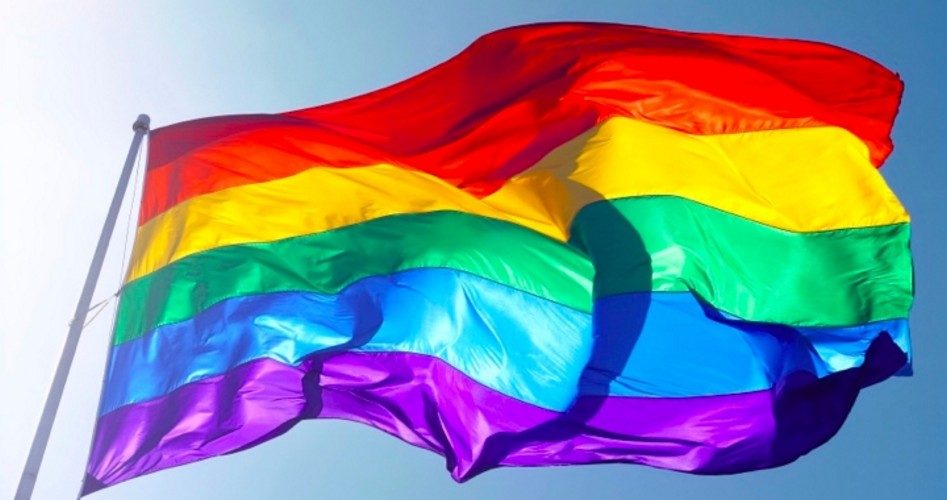
So-called “LGBT” activists are citing a certain political battle in Houston as being “the next stage of the struggle for full LGBT equality.” But what they advocate truly is a case of some citizens being more equal than others.
At issue is the euphemistically named “Houston Equal Rights Ordinance” (HERO), which expands the number of “protected” (read: privileged) classes to include homosexuals and the “transgender.” The measure, passed by the Houston City Council in May 2014, “prohibits discrimination based on race, sex, ethnicity, military status, marital status, religion, disability, national origin, age, familial status, genetic information, sexual orientation or gender identity,” writes the Huffington Post. And while the ordinance’s provisions have been highly controversial — critics say it would allow people to use the opposite sex’s bathrooms — its path to legality has been no less so.
The controversy began last year when the city of Houston targeted pastors who, trying to repeal the ordinance, had gathered 50,000 signatures to petition the government to put the issue on the ballot. Unhappy being opposed and apparently taking lessons from Barack Obama in executive overreach, the city issued subpoenas demanding, incredibly, that these pastors “turn over any sermons dealing with homosexuality, gender identity or Annise Parker, the city’s first openly lesbian mayor,” reported Fox News’ Todd Starnes last October. Moreover, “those ministers who fail to comply could be held in contempt of court,” Starnes continued.
After coming under fire nationally for this unprecedented First Amendment trespass, the city withdrew the subpoenas. But it didn’t stop scheming. While the petitioners had collected far more than the 17,269 signatures necessary for a ballot referendum, city officials refused to honor the law, claiming that many of the signatures were invalid. Ordinance opponents then sued, but in April a state district judge agreed with the city.
But this all changed just last Friday when the Texas Supreme Court ruled on the case, stated that the “legislative power reserved to the people of Houston is not being honored,” and ordered the city council “to comply with its duties.” As to the particulars, the Texas Tribune reported, “The court directed the council to repeal the Houston Equal Rights Ordinance … by Aug. 24 or place it on the November ballot.” Thus, a referendum on the matter is now a virtual certainty.
While such ordinances are billed as “anti-discrimination” laws, they’re actually government-discrimination laws and are thus fundamentally dishonest. Just consider an October 2014 statement from Mayor Parker: “It is extremely important to me to protect our Equal Rights Ordinance from repeal, and it is extremely important to me to make sure that every Houstonian knows that their lives are valid and protected and acknowledged.” This sounds oh-so noble, but note that the ordinance explicitly does not protect “every Houstonian.” Were this the case, it would be perhaps the shortest ordinance in city history, merely stating that “employment discrimination against any Houstonian is prohibited.” But instead it provides a list of “protected groups,” which, presumably, leaves “every (other) Houstonian” unprotected.
Whatever happened to equality under the law?
And if the boogeyman of discrimination is so bad, wouldn’t a blanket prohibition against it make sense? Of course, this would be unrealistic, as employers discriminate — meaning, choosing one or some from among two or more — continually. They discriminate between the qualified and unqualified, for instance.
Some may think we need anti-discrimination laws to protect against irrelevant discrimination or that based on qualities beyond a person’s control. But such laws only pretend to serve this purpose. After all, a person’s innate intelligence is beyond his control, but the “stupid” aren’t a protected class. Why not, though? Employers favor the intelligent over them, and that’s not fair. (It also seems that in this oversight Mayor Parker is ignoring a major constituency of hers.) Perhaps they aren’t swift enough to effectively lobby politicians. Or maybe stupid is as government does.
And what is “irrelevant” discrimination, anyway? Many assume the variety based on race, sex, or other superficial qualities would qualify, but is this really true? As I wrote last year:
A woman gynecologist I know will only hire female assistants because she believes it makes her patients more comfortable. Not only is this an example of why sex discrimination is often justifiable, but what if she was forced to hire a man? If the patients were indeed less comfortable — and, therefore, perhaps less likely to visit her practice — would that man truly be doing “equal work”?
Now consider female police officers…. Imagine a study found that people in general, and the criminally inclined in particular, found male officers more imposing and therefore were more likely to mind their p’s and q’s around them. Would, then, even a highly competent female officer be able to perform “equal work”? And if not … wouldn’t being male (or at least appearing so, to head the “transgender” argument off at the pass) be integral to the “work” of policing?
… Next, my local hardware store provides knowledgeable workers, all men, who render valuable advice on products and how to perform various home repairs. If it was determined that people found a female in that role less credible and were then not quite as likely to buy from the establishment, would even a highly competent woman be able to do “equal work” in that capacity?
What about the little West Indian restaurant, with all-black workers, I loved when I spent a few weeks in Tampa? If hiring a white person made the eatery seem less authentic and negatively affected its appeal, would that individual be able to do “equal work”? The same, of course, could be asked about a black person working in a German restaurant. In these cases race would be integral to the “work.”
And what of a homosexual Boy Scout troop leader? If his presence made parents less likely to enroll their boys in the organization, could he be capable of “equal work”?
Whether or not the above are ideal examples is not the point. It is rather that discrimination based on superficial or innate characteristics can be legitimate, yet it is routinely prohibited by misnamed anti-discrimination law. Why misnamed? Because the government is choosing some groups from among many in creating “protected classes,” thus discriminating in determining who can be discriminated against. It simply transfers discrimination power from the private sector to the public sector, from those who create to those who legislate. It is social engineering masquerading as an exercise in nobility.
This is why, to achieve truth in advertising, we should call “anti-discrimination laws” “freedom-of-association-destruction laws.” And what of their morality? While it’s assumed that a “good” person supports such legislation, consider: No one questions your right to include in or exclude from your home whomever you please — for any reason you want. Why should you lose that right merely because you erect a few more tables and sell food? “My property, my choice,” right?
The reality is that as with any liberty, that of association means nothing unless it includes the freedom to exercise the freedom in unpopular ways. Besides, accept the trumping of freedom of association in principle, and who knows? The government may soon be telling you what kind of cakes to bake.
Yeah, exactly.



